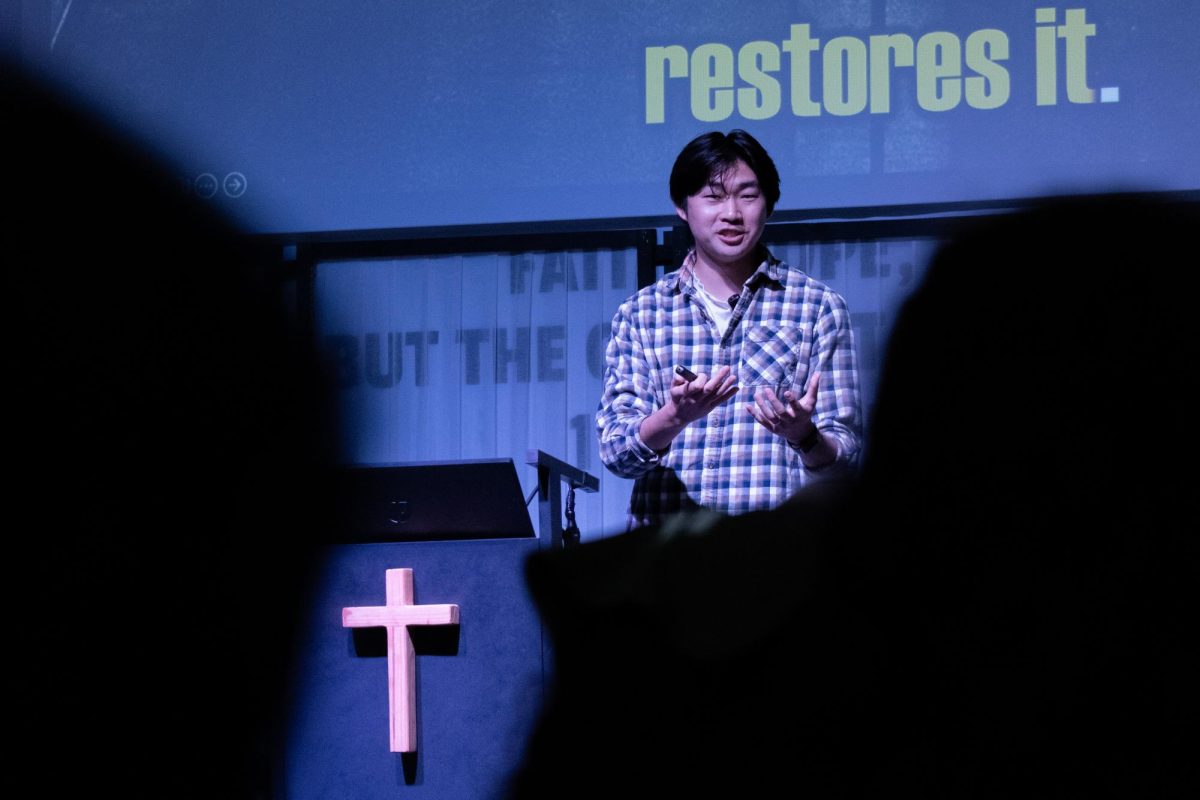The Asian American Studies department held its AAS distinguished lecture and AAS/Educational Opportunity Program (EOP) awards event on Wednesday, 5:30 p.m. to 7:30 p.m. at the Northridge Center in the University Student Union to celebrate 20 years of the AAS department.
Entering the doors of the Northridge Center, there were tables filled with food like shrimp, sandwich rolls and crackers with different types of meats, cookies, fruit and jellybeans along with refreshments that were served for guests at the event.
While guests ate, a slideshow was shown on the screen with pictures of the faculty and staff of the AAS department, students of the AAS department and of the March 4 protest.
At 6 p.m., Sandra Stanley, AAS department chair and professor welcomed everyone to the awards event and said that the main purpose of the event was not only to celebrate the 20th anniversary of the AAS department but to remember “social and culture memory.”
Opening remarks were made by Dr. Harry Hellenbrand, CSUN provost and Dr. Elizabeth Say, college of humanities dean.
“When I think of the AAS department [I think of] commitment of faculty to their students and students and faculty to the community,” said Say.
Gina Masequesmay, professor of the AAS department introduced the documentary and film screening of “Vincent Who?” and said everyone can learn something from his death.
“[We] reflect back, where we are heading and where we would like to go,” said Masequesmay.
The 40 minute documentary “Vincent Who?” started off with asking college students if they knew who Vincent Chin was. Not one college student had ever heard of him including those of Asian descent.
“Vincent Who?” explored how important the Vincent Chin case was in American history and featured interviews with old and new generation of activists that are fighting to keep telling the story of Vincent Chin alive and part of the civil rights history of America.
In 1982, Vincent Chin, 27, was at a bar celebrating before his wedding day when two white autoworkers pointed at him and said “Its your fault we are losing out jobs” because it was during the time when people were being laid off due to new advances of technology in the auto industry and the two males picked on Chin because he was of Asian descent.
The two white males followed Chin out of the bar and began to hit him with a baseball bat till his skull cracked. Chin’s last words were “It’s not fair,” till he fell into a coma and later died. His killers were let off with a $3,000 fine and served no jail time.
After the documentary there was a question and answer discussion with the film’s associate producer Preeti Kulkarni who was also awarded as the distinguished speaker for the night by Sandra Stanley, the AAS department chair.
Kulkami was moved by the death of Chin when she saw the documentary “Who is Vincent Chin?” this motivated her to become an activist in college. She wanted to keep Chin’s story alive and to have college students become involved in activism and remember the history of the Asian American community and its’ discrimination.
“My advice is to stay involved, fight for civil rights and in the film and entertainment have an Asian American perspective to what you are doing,” said Kulkami. “We need to write our own history for people to know.”
The AAS and EOP introduction was made by José Luis Vargas, EOP director.
“Privilege to be here and congratulate and celebrate 20 years of the Asian American studies department,” said Vargas. “We need to continue to be involve and continue to [have a] voice.”
The presentation of student awards were given to students by various members of the AAS department including Glenn Omatsu, Tracy Buenavista, Gina Masequesmay, and Eunai Shrake.
The awards given were to promising freshmen, promising sophomores, special achievement award, promising future teacher awards, special recognition awards, academic achievement award, Kenyon Chan outstanding leadership awards and outstanding alumni service awards.
Many of the students that accepted their awards were allowed to make a small speech to thank their families and the AAS faculty and department.
“That’s what so great about the AAS department it is a small close community,” said Derek Tang who was awarded one of the outstanding alumni service award.





